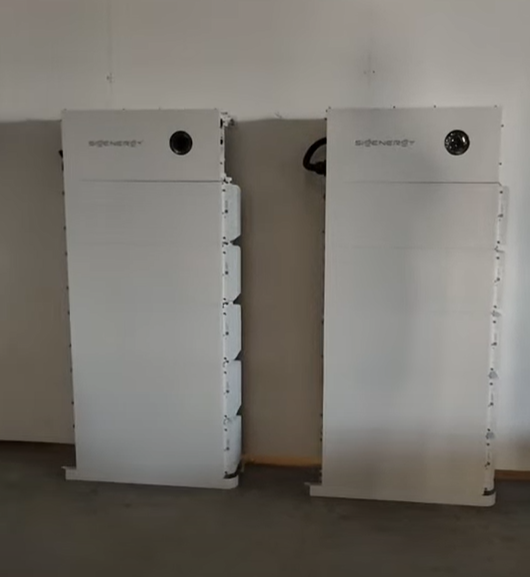Solar Battery Costs – Are They Worth It?
- JVC Energy Team

- Aug 10, 2025
- 3 min read

In the solar industry, both professionals and PV system owners have been waiting for the moment when home battery prices drop enough to deliver a solid return on investment.
This guide looks at solar batteries for Sydney and NSW homes, assessing whether they’re a worthwhile investment using data, case studies, and real-life examples. We’ll break down how they work, their benefits, current pricing, available rebates, and how long it can take to recover your investment.
With the introduction of the national battery rebate in 2025, solar batteries are now financially viable in many situations. In our typical NSW household scenario, the payback period has dropped from over 10 years to around 4 years.
Solar Battery Costs in Australia – August 2025
JVC Energy tracks the average installed costs for the most popular solar battery models, ensuring transparency for homeowners. Below are the key factors influencing cost:
Usable Capacity: Measured in kilowatt-hours (kWh), this is how much energy your battery can store and supply outside of solar production hours.
Installation Costs: Costs vary based on your current solar system setup, battery placement, and switchboard condition.
Retrofit vs New Install: Adding a battery to an existing system can cost more unless you already have a hybrid inverter.
What is a Solar Battery & How Do They Work?
During daylight hours, your solar panels generate electricity. Your home uses this power first, with any surplus either exported to the grid (earning feed-in tariff credits) or stored in your battery for later use. At night or during low sunlight, stored energy powers your home, reducing the need to buy electricity from the grid.
Batteries store energy as DC, which can be fed through a hybrid inverter or supplied as AC from models with integrated inverters, such as the Tesla Powerwall 3.
How You Benefit from a Solar Battery
Lower Power Bills: A solar-only system covers about 30–50% of your usage. Adding a battery can push that up to 80–100%.
Blackout Protection: Many batteries can provide backup during outages, with some requiring additional hardware.
Carbon Reduction: Pairing a battery with solar can more than double your household’s emissions reduction.
Virtual Power Plants (VPPs): Join a VPP to sell stored energy at premium rates, earn annual participation fees, or access installation discounts.
How Much Do Solar Batteries Cost?
In Australia, residential solar batteries generally range between $700 and $1,000 per kWh installed, depending on brand, size, and location.Average fully installed costs (August 2025, including federal rebate but excluding state rebates):
Battery Size | Battery Only Price | Battery + Inverter/Charger |
5kWh | $5,180 | $6,580 |
10kWh | $8,260 | $9,860 |
15kWh | $11,190 | $13,140 |
20kWh | $14,120 | $16,920 |
Federal & State Rebates
Federal: The $2.3bn national rebate offers ~$345 per usable kWh installed.
NSW: Up to $1,500 extra when connecting to a VPP.
WA: Up to $3,800 rebate plus interest-free loans for eligible systems.
Federal & State Rebates
Federal: The $2.3bn national rebate offers ~$345 per usable kWh installed.
NSW: Up to $1,500 extra when connecting to a VPP.
WA: Up to $3,800 rebate plus interest-free loans for eligible systems.
Conclusion:With the 2025 national battery rebate, solar batteries are now a practical and financially viable upgrade for many Sydney and NSW homes. When combined with JVC Energy’s expert design and installation, they deliver both economic and lifestyle benefits — helping you move closer to complete energy independence.
📞 Contact JVC Energy today at 0413 884 017 or visit www.jvcenergy.com.au to book your solar battery consultation.




Comments